Unveiling the Eternal Union: Exploring the Oneness of Shiva and Shakti
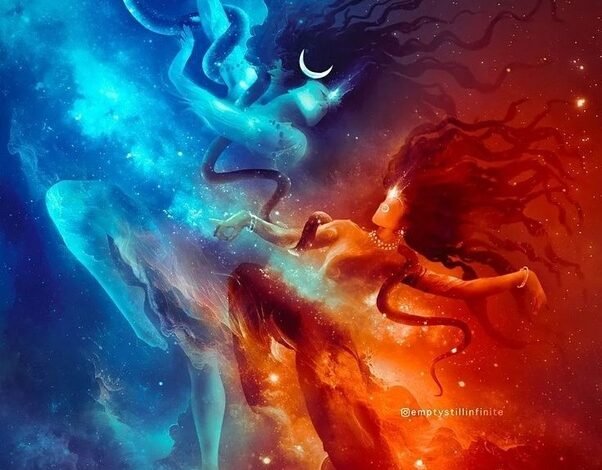
Is Shakti separate from Shiva? Before Sati and Parvati were born, in which form was Shakti with Shiva?
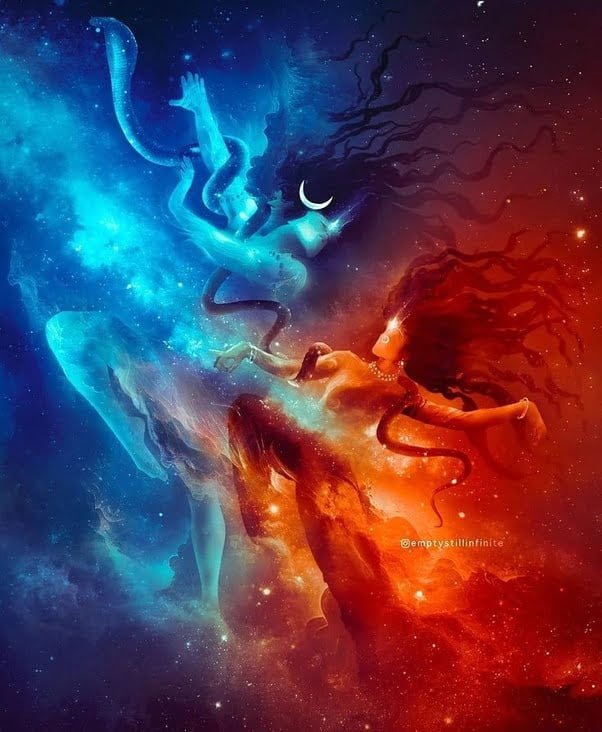
Is Shakti Separate from Shiva? Understanding the Divine Union
In the realms of Hindu philosophy, the relationship between Shiva and Shakti is a profound and intricate one. Often depicted as separate entities, their true essence lies in their inherent unity and inseparability. Let’s delve into the mystical bond between Shiva and Shakti, unraveling the mysteries of their eternal union.
The Divine Oneness: Shiva and Shakti as One
In the sacred land of Vrindavan, Radha and Krishna are revered not as distinct beings but as one divine entity. Similarly, Shiva and Shakti are not to be perceived as separate; they are the embodiment of the divine masculine and feminine energies, intertwined in eternal harmony.
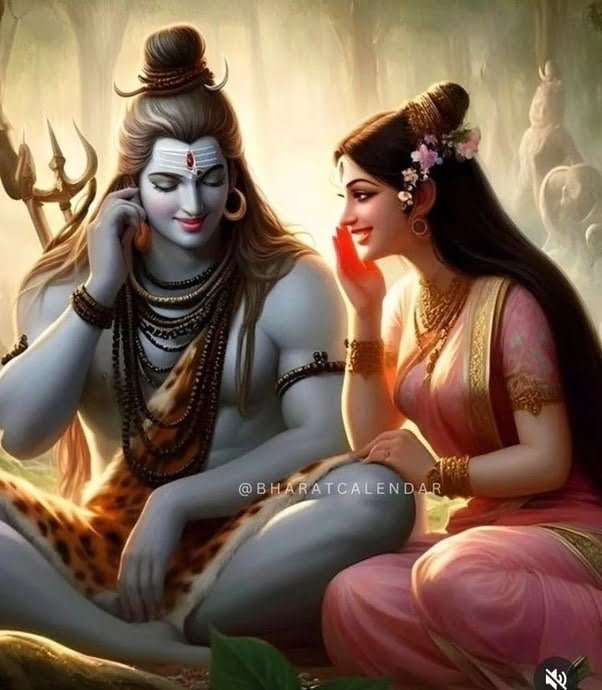
Understanding the Cosmic Dance of Creation
In Hindu mythology, all goddesses, whether Parvati Mata or Laxmi Mata, are revered as ‘Shakti,’ representing the primordial cosmic energy that pervades the universe. Likewise, Shiva and Vishnu are revered as the ‘Supreme Being,’ symbolizing the ultimate source of all creation.
The Primordial Form: Adi Parashakti
Before the manifestation of Sati and Parvati, Shakti resided with Shiva in the form of Adi Parashakti – the primordial cosmic energy. Adi Parashakti is the original form of Shakti, representing the divine feminine energy that encompasses the entire cosmos. In this form, Shiva and Shakti are inseparable, embodying the intrinsic unity of the universe.
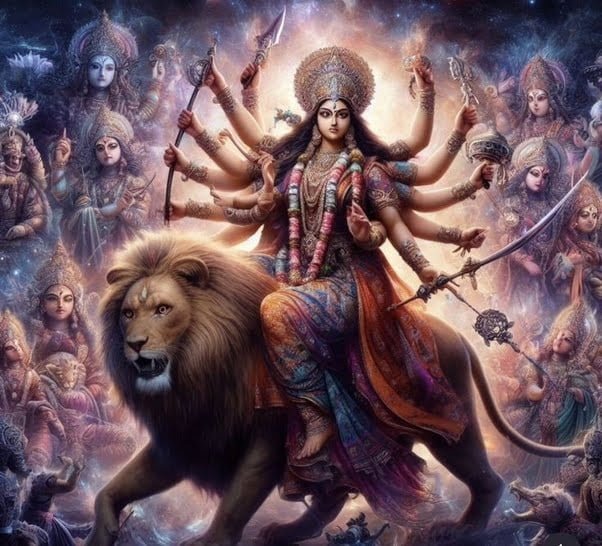
In essence, the union of Shiva and Shakti transcends mere symbolism; it represents the fundamental unity underlying all existence. Just as the soul and body are interdependent, Shiva and Shakti are inseparable aspects of the divine cosmic dance of creation. Embracing the divine union of Shiva and Shakti unveils the timeless truth of oneness, guiding us on the path of spiritual realization and enlightenment.
Discover more from Sanatan Roots
Subscribe to get the latest posts sent to your email.
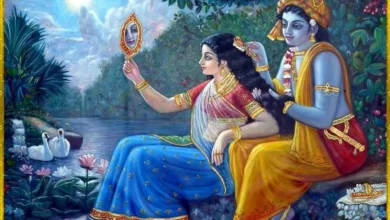
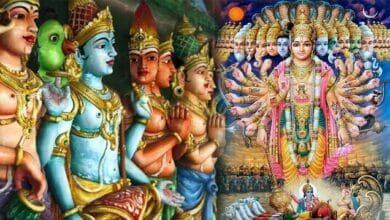
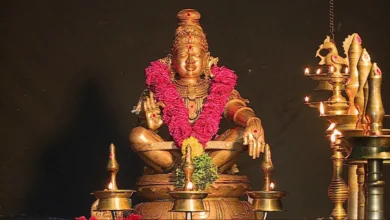
Howdy! I could have sworn I’ve been to this website before but after browsing through some of the post I realized it’s new to me. Nonetheless, I’m definitely delighted I found it and I’ll be book-marking and checking back often!
So glad you found the blog! 😊 Welcome, and thank you for stopping by!
It is perfect time to make some plans for the future and it’s time to be happy. I’ve read this post and if I could I desire to suggest you few interesting things or advice. Maybe you can write next articles referring to this article. I desire to read more things about it!
Excellent blog you have here but I was wondering if you
knew of any message boards that cover the same topics discussed here?
I’d really love to be a part of community where I can get feed-back from other experienced
individuals that share the same interest. If you
have any recommendations, please let me know.
Thanks!
Really appreciate your kind words! Glad you liked the post.
Generally I don’t read article on blogs, but I wish to
say that this write-up very compelled me to take a look at and do so!
Your writing taste has been amazed me. Thank you, quite nice post.
That means a lot—thanks for taking the time to read and share such kind words! 🙏
I was suggested this blog by my cousin. I’m not sure whether this post
is written by him as no one else know such detailed about my trouble.
You are amazing! Thanks!
So happy it resonated with you! Thanks for your kind words. 🙏
hello!,I like your writing very so much! share we keep up a correspondence more about your article on AOL?
I require a specialist on this area to resolve my problem.
May be that is you! Having a look ahead to see you.
Thank you for your encouraging words!
Please feel free to describe your concern here. I’ll be glad to guide you in the best possible way.
An impressive share! I have just forwarded this onto
a co-worker who has been doing a little homework on this. And he in fact bought me
lunch simply because I stumbled upon it for him…
lol. So let me reword this…. Thanks for the meal!!
But yeah, thanks for spending some time to discuss this matter here on your blog.
Hi, I do think this is a great website. I stumbledupon it
😉 I’m going to revisit once again since I bookmarked it.
Money and freedom is the greatest way to change, may you be
rich and continue to guide other people.
It is the best time to make a few plans for the long
run and it is time to be happy. I’ve read this submit and if I may I desire to suggest you few attention-grabbing things or
tips. Maybe you could write next articles regarding this article.
I desire to read more things approximately it!
Nicely delivered
Highly engaging